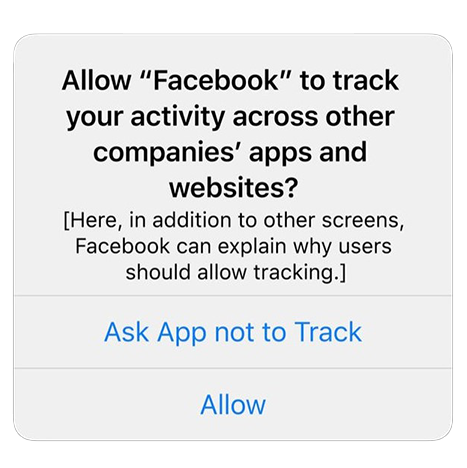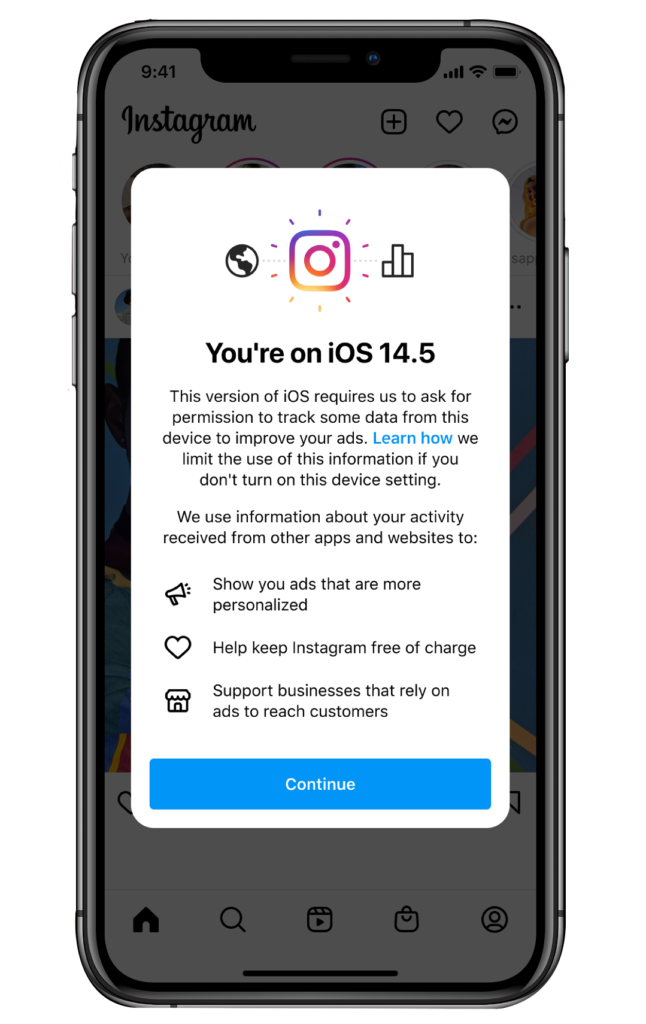
Apple and the new iOS update that will impact advertising
The new Apple update iOS 14.5 is now official and is available in most geographies and on devices newer than (and including) iPhone 6s. The update brings new features to iPhone lovers including enhancements to Siri, fitness apps, a way to unlock the phone using Apple Watch and more. But, ever since the potential update was announced mid-2020, the most talked about feature has been Application Tracking Transparency or ATT.

What is ATT and why is it a big deal?
It is no secret that all large technology firms, social networks, and e-commerce platforms track all our data. They probably know more about us, than we know ourselves. And if we had any iota of doubt, experts quashed it in the famous Netflix original ‘The Social Dilemma’. As they say, if you are using something that is free, then you are the ‘product’!
But with ATT, Apple claims you can reduce, if not all, some of these watch towers. Application Tracking Transparency allows iPhone users to not allow advertisers and apps to track personal data including usage behaviours, apps used, time spent on phone, videos liked, your fitness schedule and if you are planning to cut down on carbs! But is this feature new? Technically, no. Apple iPhone users could visit settings and opt out of tracking even earlier, but now this is an ‘opt-in’ feature.
If you have already got the new update, you have probably seen the new prompt. Users have to now say ‘yes’ to being tracked, and it is easy to guess which option almost all users would choose! Even with the ‘opt out’ option earlier, it is estimated 20% users had chosen not to be tracked.
From the point of view of a regular iPhone consumer, this is a great feature. It gives a sense that the world is a safer place and Apple is the messiah! Apple has categorically stated that it is a product company and not one that makes money from advertising, and that it is merely giving its user more control. We agree.
Why is Facebook worried?
Even during large controversies, data leaks and accusations of election biases, Facebook was generally unmoved or would appear unscathed. But this was not case, this time. Facebook put large ads in newspapers, online platforms and gave warnings in bold red to users of Facebook Ads Manager – almost shying short of asking people to sue Apple individually.
Why Facebook is worried is a no brainer. With less tracking and data from Apple, its audience targeting on ad campaigns can get severely impacted resulting in businesses spending less and denting Facebook’s ad revenues.
Facebook sees this move as discriminatory towards small businesses. This cannot be denied entirely. With Digital Advertising, small and medium businesses have over the years found an effective way to target relevant audience and grow business.
What about Google?
From the perspective of ads, Google should be equally worried about Apple’s move. But it has let Facebook be the bad boy here and lead from the front. Probably also because the situation has a potential backfire – more people moving to iOS from Android if they deem Apple as the true godparent of data here. Better stay ‘mum’.

A different perspective
- Notably, the new ATT does not apply to Apple’s own services including its own apps, services or even advertising. This is because Apple claims they do not ‘sell’ the user data to any 3rd party. This clearly means, the intention here is to punish the ‘bad guys’ and not everyone!
- This is not the first time something has been done about user data tracking. Apple, for years, has something called IDFA or Identity for Advertisers. The way this works is simple – every Apple device is assigned an IDFA that depersonalizes user from the data. All usage behaviours, patterns and interests are associated with the ID and not the actual identifiable person. This way, advertisers or tracking apps would not be able to associate the data with an actual person, in a way like an anonymous survey! Google has its own version of tracking ID called Google Play Services ID or GPS ID – what an irony in the acronym that stops tracking phone users!
- While there is no denying the issue of data protection and need for preventing an identity theft, genuine tracking may be good for the end user. By opting to not being tracked, the ads are not going anywhere – you will still see all ads on different apps, social networks and every few seconds of watch time on YouTube. But the problem is that the ads will now be less relevant. Apart from probably missing out some useful promotions that you could gain from, one may now see irrelevant content against something that would have been more interesting otherwise.
- Cookies have been there with us all the time and they have the same job of tracking us! Due to the recent restrictions and guidelines, most platforms are now required to warn users about the information the website is tracking for advertising. But unlike the Apple’s warning, the one with cookies is worded in a more neutral way and is more of an ‘opt-out’ choice. When Apple says, “do you want the ‘app’ to track your activity across other companies’ apps & websites?” and markets the move on the lines of ‘Right to Privacy’, half the decision is already made for you.
